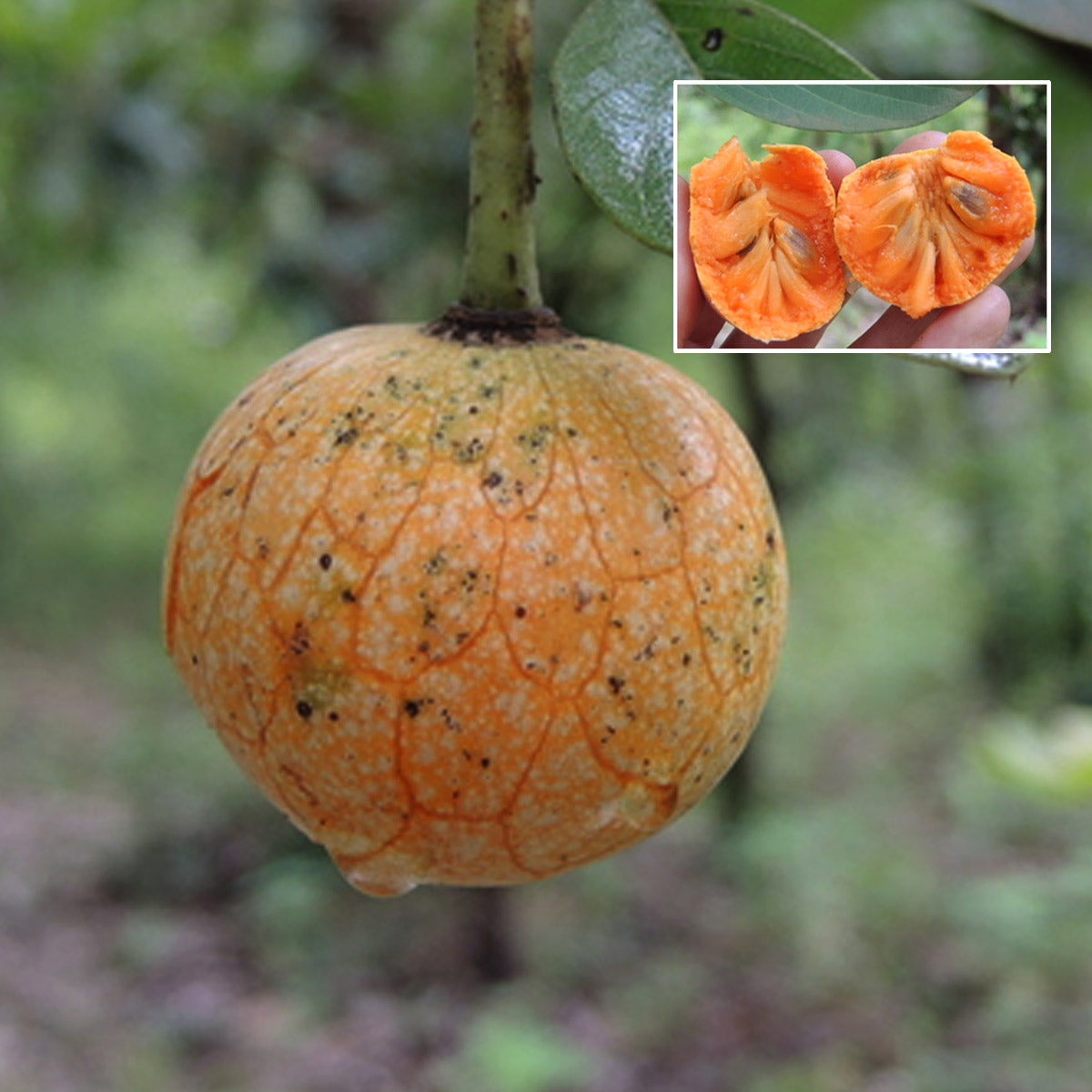Love it? Add to your wishlist
Your favorites, all in one place. Shop quickly and easily with the wishlist feature!
[message]
[title]
[message]





Veliyath Gardens
Couldn't load pickup availability
African Custard-Apple (Annona senegalensis): A Tropical Treasure for Health and Cultivation
The African Custard-Apple (Annona senegalensis), also known by various common names such as Wild Custard Apple, Wild Soursop, Sunkungo, and Dorgot, is a unique and exotic fruit plant that thrives in the warm, tropical climates of Western Africa. This fruit-bearing shrub or small tree is not only prized for its delicious, pineapple-like flavor but also for its many health benefits, making it a highly valuable addition to both traditional medicine and modern agriculture. Whether you're interested in its nutritional value, medicinal properties, or cultivation practices, the African Custard-Apple offers an intriguing and beneficial option for fruit lovers and gardeners alike.
The African Custard-Apple is a flowering plant in the Annonaceae family, which also includes other well-known fruits like the soursop and cherimoya. It is native to Western tropical Africa, ranging from Senegal to Kenya, and extending southward to Zimbabwe. This hardy shrub typically grows between 2 to 6 meters tall, but in favorable conditions, particularly in East Africa, it can grow tree-like, reaching up to 11 meters in height.
The plant produces yellow to orange fruits, about 5 cm in diameter, with an edible yellow to orange pulp that has a pleasant pineapple-like aroma. The flavor of the fruit resembles that of apricots, offering a delicious treat for those lucky enough to harvest it.
The African Custard-Apple is a nutrient-dense fruit, making it a great addition to a healthy diet. Here are some of the key nutritional components of this tropical fruit:
Beyond its delicious flavor, the African Custard-Apple is packed with numerous health benefits, thanks to its rich profile of bioactive compounds. Here are some of the most notable health benefits:
The African Custard-Apple is a relatively low-maintenance plant that is well-suited for tropical and subtropical climates. Here's everything you need to know about cultivating this exotic fruit tree:
In Western Africa, the African Custard-Apple is a highly valued fruit, both for its flavor and its medicinal properties. It is often consumed fresh or used in traditional remedies. In some cultures, the leaves and seeds are also used for medicinal purposes, and the fruit is considered a staple in local diets.
Beyond its cultural significance as a food source, the African Custard-Apple is also a valuable plant in traditional medicine, where it is used to treat a range of ailments, from digestive issues to malaria. Its easy cultivation and versatile uses make it a staple of many African gardens and agroforestry systems.
The African Custard-Apple is well adapted to tropical ecosystems, where it plays an important role in maintaining biodiversity. In addition to its agricultural and medicinal uses, the tree helps to stabilize soil and prevent erosion, making it a valuable addition to agroforestry systems.
Due to its moderate water requirements and low maintenance needs, the African Custard-Apple can be a sustainable choice for gardeners looking for low-input fruit trees that offer ecological benefits.
The African Custard-Apple requires moderate maintenance:
The African Custard-Apple (Annona senegalensis) is a tropical treasure that offers a delightful combination of delicious fruit, health benefits, and cultural significance. Its ability to thrive in tropical climates with moderate maintenance makes it an ideal choice for gardeners looking to grow a unique and valuable fruit tree. Whether you’re interested in its antioxidant-rich fruits, its potential medicinal uses, or its environmental benefits, the African Custard-Apple is a wonderful addition to any tropical garden.
Key Facts:
By cultivating this exotic fruit plant, you can enjoy its healthful rewards and contribute to the sustainability of tropical ecosystems.
Climate: As a tropical fruit plant, it thrives in warm conditions and high humidity, similar to the climates of Western Africa where it originates. It prefers temperatures between 20°C and 30°C and does not tolerate frost.
Soil Requirements: The African Custard-Apple grows best in well-drained soils. While it can adapt to various soil types, it prefers slightly acidic to neutral soils with good organic content.
Immune Support: The high vitamin C content in the fruit strengthens the immune system, helping the body fight infections and stay healthy.
Weight Management: With its moderate carbohydrate content and rich nutrients, the fruit is a satisfying and healthy snack that can help manage weight without compromising health.
Beyond its delicious flavor, the African Custard-Apple is packed with numerous health benefits, thanks to its rich profile of bioactive compounds.
Fights Chronic Diseases: The fruit contains polyphenolic compounds that are beneficial in the prevention and management of various chronic conditions, including cancer, diabetes, cardiovascular diseases, and neurodegenerative conditions such as Alzheimer's disease.
Antiparasitic and Antimalarial Properties: The essential oils in the fruit have been found to have antiparasitic and antimalarial properties, which have made it an important part of traditional medicine in many African regions, where malaria is prevalent.






